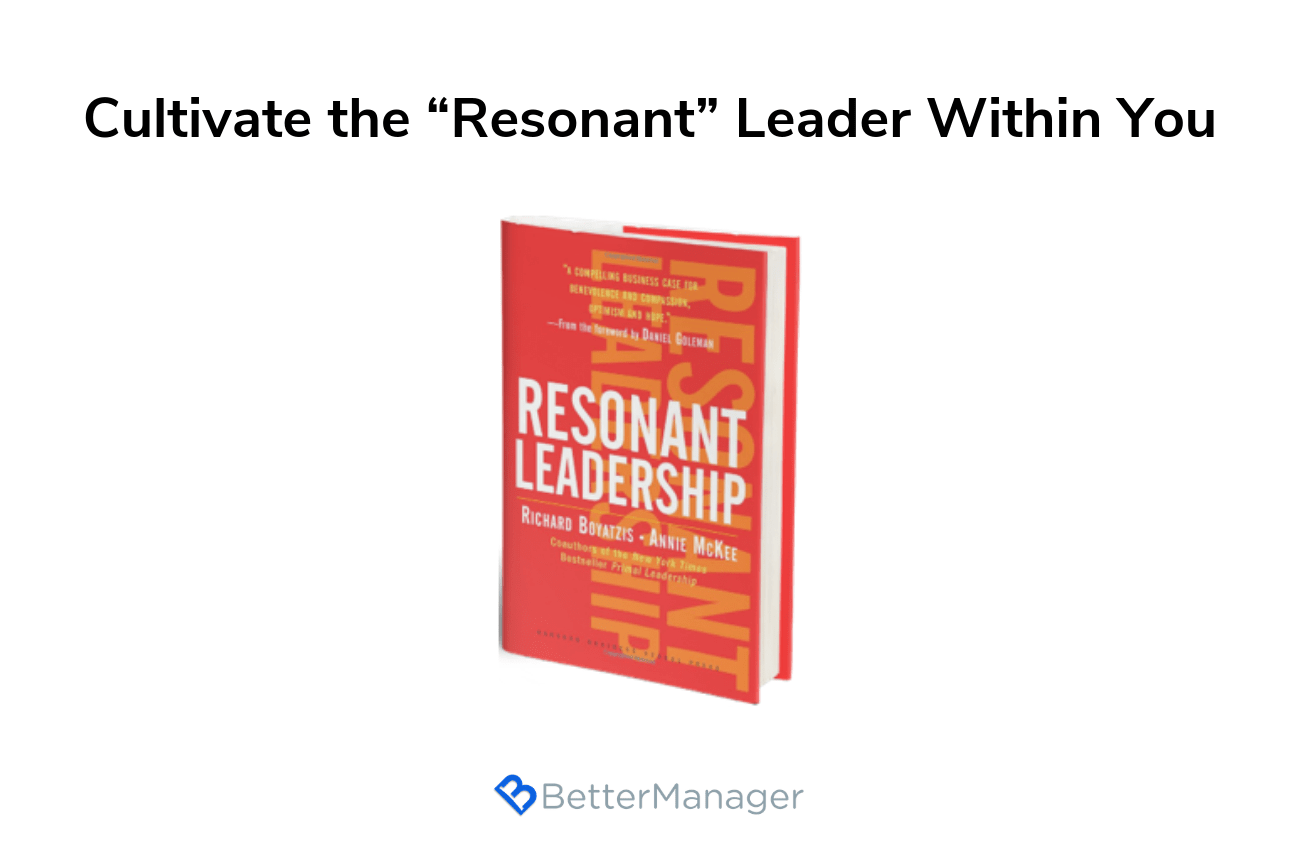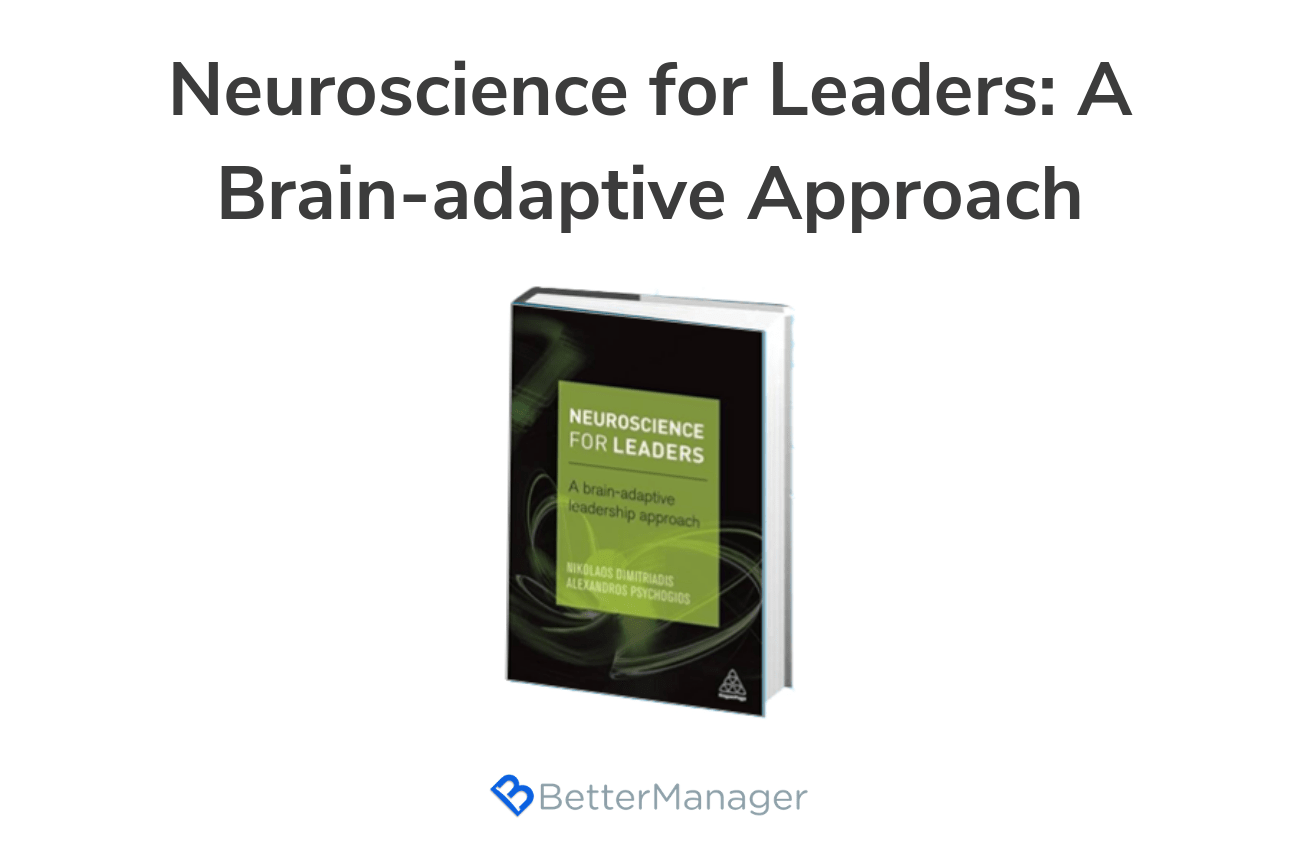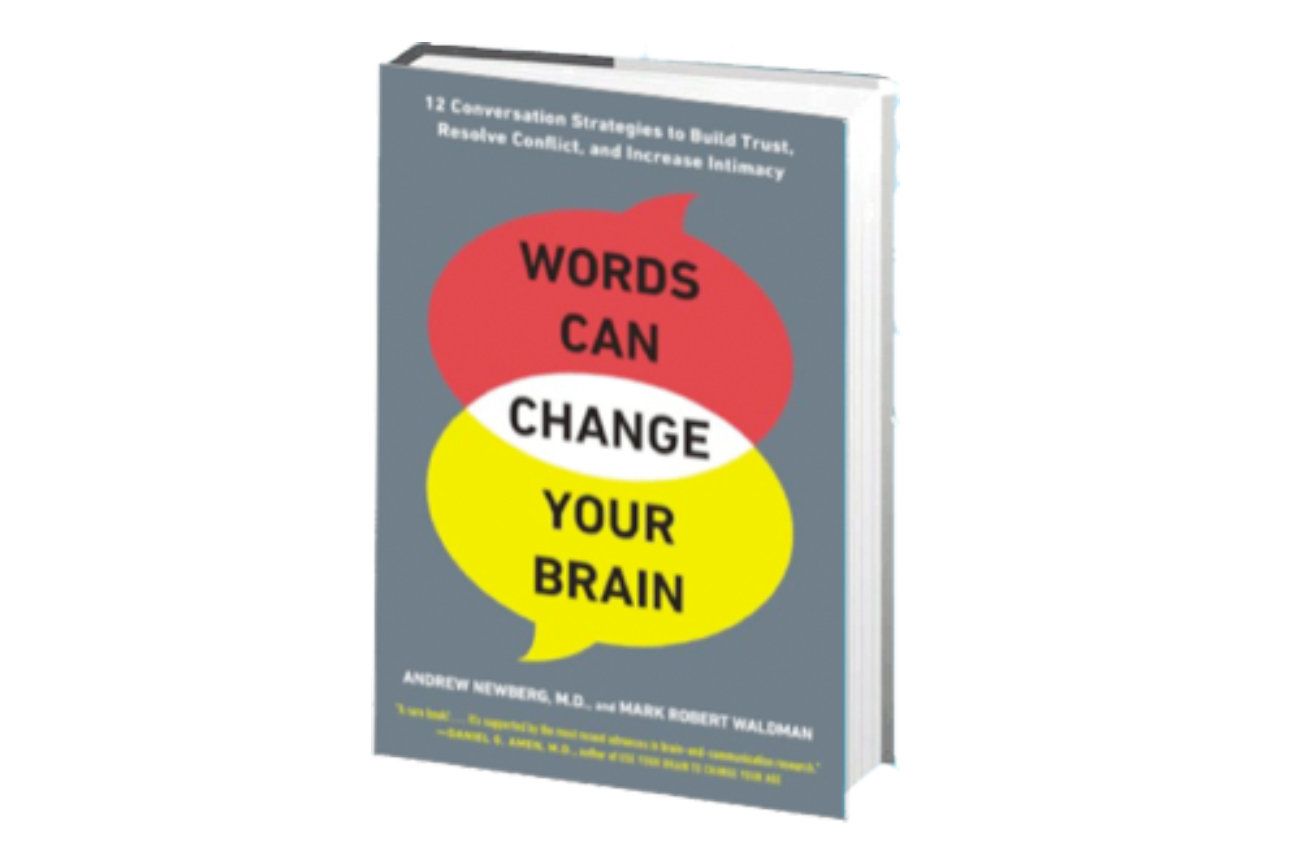
I am Will Corley, Co-founder of BetterManager, a company whose bold mission is to make the workplace a better place, one manager at a time. Today I am reviewing the book Resonant Leadership a book by Richard Boyatis and Annie Mckee, already known from their work as co-authors of Primal Leadership with Daniel Goleman.
Leadership, when exercised well, is among one of the most honorable and rewarding professions. But as any good thing in life, it also comes with a downside. For one thing, it can be very stressful even for the most experienced leaders. Stress is insidious. Richard Boyatis and Annie Mckee the authors of Resonant Leadership call it “Power Stress”. Unfortunately, it is contagious, and if gone unchecked, it will get passed to the leaders’ direct reports, who, in turn, will pass it down to their own directs. The stress then cascades all the way down to the front lines. Stress does not discriminate and can destroy relationships, families and organizations alike.
According to Richard and Annie, “The culture of an organization, and in particular the way people feel about the climate, can account for nearly 30 percent of business performance.”
Hence finding a cure to the “CEO disease” or what they coin the “dissonant” leader — a leader who does not have their emotions in check and brings negative emotions to the workplace– has a huge, not only, human but financial impact at stake.
Fortunately, there is a lot of hope, the authors go on to provide a practical framework for how leaders can build resonance — the antithesis of “dissonance” — in themselves, their relationships, their teams, and the organization. The authors call on leaders to intentionally work at renewing themselves from within, so they can tap into their ability to create resonance within themselves and with others.
The linchpins to renewal and developing resonance, according to the book, are:
Mindfulness – or living in a state of full, conscious awareness of one’s whole self, other people, and the context in which we live and work. In effect, mindfulness means being awake, aware and attending to ourselves and to the world around us.
Hope – which helps us believe that the future we envision is attainable. Having hope helps us move toward our visions and goals while inspiring others to work towards those goals too.
Compassion – allows us to understand other people’s wants and needs, as well as become better motivated to engage, understand, and act appropriately upon our own feelings.
On a final note, they state the idea that resonance does not happen by accident. Leaders must work on becoming aware of their destructive behavior patterns and make time to renew themselves physically, mentally and emotionally.
“For most of us, developing ourselves this way requires a process of intentional change: deliberate, focused identification of our personal vision and our current reality, and conscious creation of and engaging in a learning agenda.”
We at BetterManager are very much aligned with the importance of leaders and managers learning how to build their own inner resonance. We agree that the best leaders bring mindfulness, hope and compassion (resonance) to their leadership role. To know more about our framework leadership
Posted on
March 26, 2018









